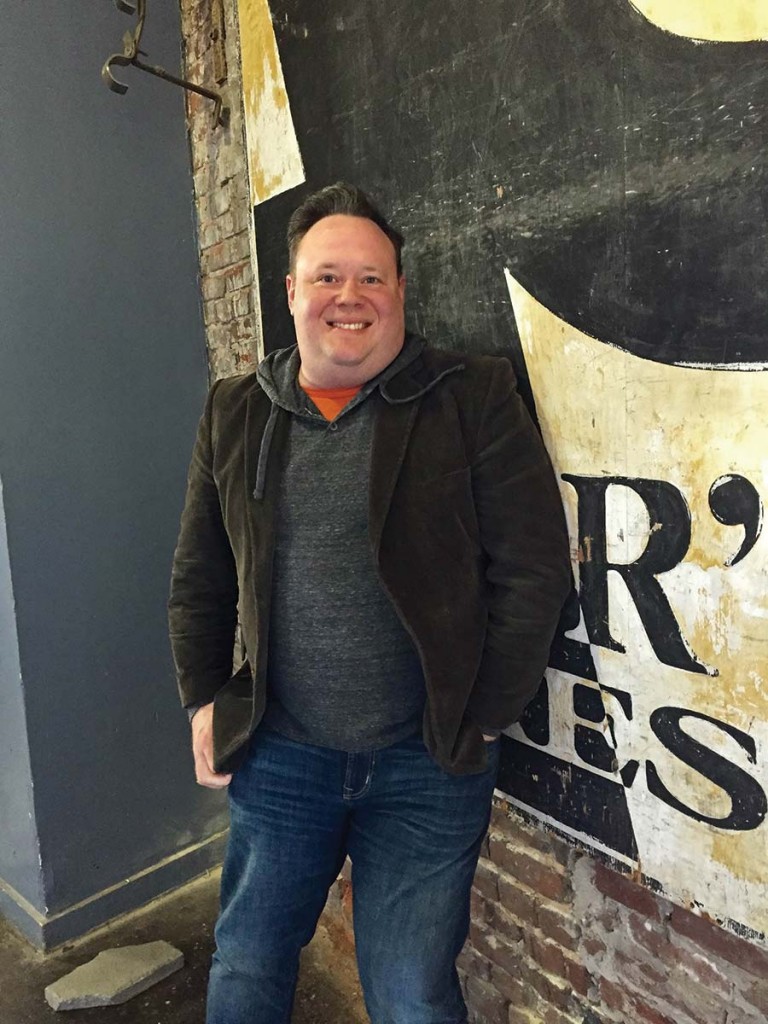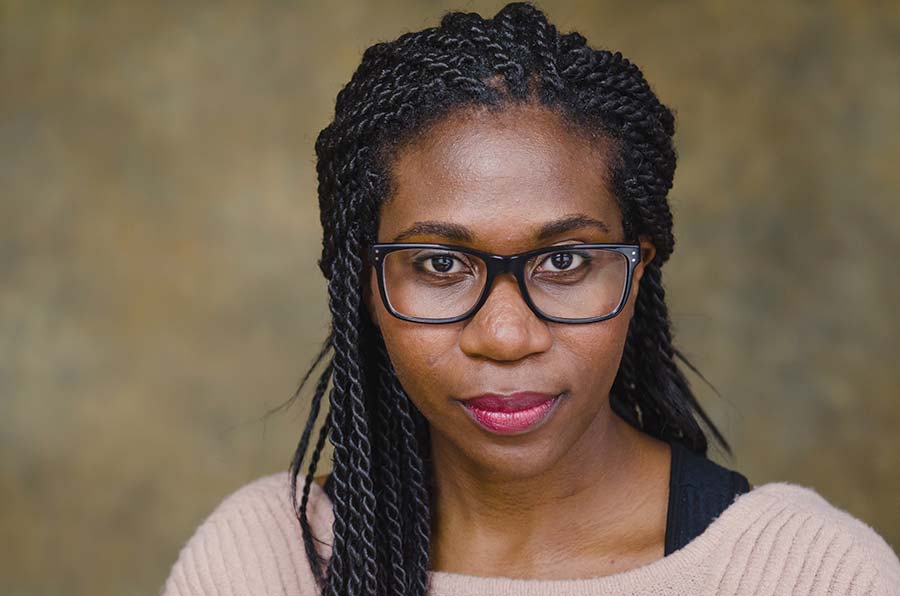Back in the early 1980s, the notorious Atlanta Child Murders inspired everything from celebrity benefit concerts and TV miniseries to local curfews and dire warnings on the news. By now, however, all traces of one of the era’s cruelest crime sprees have all but evaporated. Even though 23 black children from one community were killed between 1979 and 1981, and even though a killer was never convicted, the story has receded from view. People under 40 who grew up in or near the Georgia capital may be completely unfamiliar with what happened: all those victims, all those suffering families, just absent from memory.
The playwright Janine Nabers initially didn’t know about the murders, despite having grown up in nearby Texas and Louisiana and having family in Atlanta. “My parents were the people who told me about the murders in a random conversation we were having a few years ago,” she recalls. “I was saying, ‘Wait…what? What?’ I was blown away that I had not known anything about it, and that all of these people were black, and that there were no answers. It was just this open-ended trauma.”
Nabers felt compelled to confront this awful time. To do so, she used a commission from New York City’s Playwrights Horizons to write Serial Black Face. The play follows Vivian, a poor single mother coping with the disappearance of her son and enduring a fractured relationship with her teenage daughter. Eventually, while she’s working at her menial job, Vivian meets a dashing man and overlooks his caginess long enough to marry him. Once he’s inside her home, the story careens toward a kick-in-the-chest conclusion, forcing us to consider both the weight of vicious crime and the endless pressures of Vivian’s situation.
In this way, Nabers does more than resurrect the Atlanta Child Murders. She tries to contextualize them within the economic and social reality of the neighborhoods and people that were most affected. “My roots are being an African-American woman growing up in the South,” she says. “I know it’s really hard to get your voice heard. This play is a representation of what it’s like to be an African-American woman trying to figure out who she is in the midst of personal and historical chaos.”
Now contemporary Atlantans can encounter that chaos themselves: This April 2–24, Actor’s Express is producing the play’s world premiere, meaning that Nabers can deliver her message directly to the city that inspired her work. She was not expecting that. “I hadn’t really imagined Atlanta as the play’s initial home, because it seems like a part of history that people would prefer to sweep under the rug. To have this production in Atlanta is really extraordinary!”
So is the fact that Actor’s Express is mounting the show. After a near-fatal financial crisis, the 28-year-old company has recently emerged with a newly focused artistic identity that makes it the obvious home for a story like this one. Even in a robust theatre town like Atlanta, the troupe sees itself as a beacon for voices that might otherwise go unheard.
“The Express is really good at engaging audiences in conversations that are difficult or that otherwise wouldn’t even be had in the first place,” declares Steve Yockey, one of this season’s most-produced American playwrights and a five-time veteran of productions at Actor’s Express. “One of the pillars of our modern society is the ability to process an event quickly and then put it on a top shelf and not look at it again. But when you go back to see a play where something is really unpacked, and you’re left to sit in it—that’s a different thing. You’re marinating in an idea, or looking through a lens that is not your own. The Express is very specific about wanting to push the envelope—and the audience that goes to the Express wants to be pushed.”
Take the company’s current season: It began with Stupid Fucking Bird, Aaron Posner’s fractured adaptation of Chekhov; continued with two Yockey plays in repertory, the supernatural thriller The Thrush & the Woodpecker and Blackberry Winter, about a woman coping with her mother’s Alzheimer’s; then moved on to a sleek production of Sweeney Todd. After Nabers’s play comes Significant Other, a gay romcom by Joshua Harmon.
From one perspective, this might seem like a motley assortment: a legendary musical next to a gay comedy next to a spooky drama featuring mythically powerful birds. But, all these plays are about people on the edge of their particular societies. Most have lead roles for women and/or people of color. And, in one way or another, they all refuse to deliver mindless escapism. Even when there are laughs and catchy tunes, someone’s sharpening a blade in the background.
This is not an accident. “I’ve found that plays that are somewhat gentle in tone don’t perform well at the box office here,” says Freddie Ashley, who became the theatre’s fourth artistic director in 2007. “That is very telling. Our audiences want something that has more visceral impact. A lot of the plays we do are done by other people as well, so it’s not like we’re choosing things that no one else in America is doing. But when you look at our plays in conversation with each other, you see something specific start to emerge.”

Not long ago, the company seemed to be adrift. Since its founding in 1988, the Express had been driven by the desire to tell challenging stories, making its mark with work like Love! Valour! Compassion! or revivals of formally daring pieces like María Irene Fornés’s Fefu and Her Friends. But by 2011, financial troubles threatened to close the company’s doors. “At that point, we hadn’t had a show hit its ticket-sales goal in probably a year and a half,” Ashley recalls. “I was feeling a little lost in terms of how to program for the audiences here.”
Happily, a successful fundraising campaign beat the wolves from the door, giving Ashley and his collaborators a chance to regroup. “We happened to be in the midst of a strategic planning process, which is either the best possible time for a major crisis or the worst possible time,” he recalls. “But we decided we didn’t want to make big plans for the future based on fear. So we committed to listening to what the community was telling us, in order to translate this crisis into a new understanding of who we are and what we’re here to do.”
What steps did the company take to reemerge? Ashley says, “We resisted the urge to pull back on programming—if anything, we kept expanding.” Alongside mainstage shows, he notes, the Express hosts a regular cabaret night and offers a class for local adults who want to read new plays. “We also looked at the aesthetic variety of the work we were doing—the question was how narrowly we could focus the bandwidth of our identity, and within that narrow bandwidth, how much variety we could create with our work.”
Thus the current season, with its assorted outsiders and intense aesthetic experiences. But the Express is not aiming for generic edginess. Ashley wasn’t drawn to Serial Black Face, for instance, because it addresses lurid crimes. “Freddie understands that family is really what’s at the heart of this play,” Nabers says. “He’s able to talk about that in a really eloquent way.”

Ashley chimes in: “It’s a story that gives voice to people who have never really had a voice—and not just with regard to the story of these murders, but also to the world of the play—the working poor, single mothers. Particularly single mothers of 35 or 36 years ago, who didn’t have any kind of support system and whom society has been set up to create barriers for.”
He uses similar language to discuss Yockey’s Pluto, which the Express premiered in 2013. The play looks at a school shooting from the perspective of the shooter’s mother. “I thought there was bravery in showing us a mother who has to come to grips with the fact that her little boy was capable of doing something like this,” Ashley says. “It wasn’t trying to be provocative. It was saying, ‘Look, there are emotional, human aspects to these stories that we never consider, and perhaps it’s in our best interests to do so.’”
The Express, then, wants its audience to stare meaningful issues in the face. Social consciousness has been a keynote of the theatre’s rebirth. Its marketing and outreach have become more actively engaged with designated Atlanta communities: A successful production of the musical Spring Awakening, for example, taught the company how to keep younger patrons connected to each other (and the theatre itself) on social media. For Harmon’s Bad Jews (a play he developed at the Express when Harmon was playwright-in-residence), bonds with Jewish organizations were forged before the first preview.
“We’d heard some concern, based even on the title, that this was not an empowering representation of the Jewish experience, which of course it is,” Ashley recalls with a grin. “We didn’t want to put ourselves in the position of being reactive, so we worked early on to partner with synagogues and Jewish community centers around town. And we were really moved by how the Jewish community embraced and debated the play. Other audiences did as well, and we were delighted that everyone became part of it.”
Not that all these changes were seamless. Though ticket buyers have almost doubled during Ashley’s tenure—and the theatre’s annual budget has increased from $550,000 to just under $1 million—there are still productions that don’t hit their goals. And some subjects get more resistance than others.
“I’ve tried to make sure conversations about class don’t disappear from our programming,” Ashley says. While a 2012 staging of The Motherfucker With the Hat was a hit, other class-focused works haven’t been. Ashley remains undeterred. “It’s important that this theatre remain a place that is democratic,” he avers. “Just because people might not be used to encountering working-class people onstage doesn’t mean those stories aren’t worth telling.”
Meanwhile, Ashley has honored the company’s longstanding reputation for mounting LGBT work, and he’s been equally committed to ethnic diversity and gender parity. “Most of the directors I hire are women, and a lot of our design teams are women,” he notes. “And there was a season when everything we did had a female protagonist.”
Ashley may feel emboldened to resist what his community expects because he himself is a local. A native of nearby Rome, Ga., he has lived and worked as an actor and director in Atlanta for most of his adult life, and he has long been openly gay, unapologetically idealistic, and notably unwilling to accept the kind of quiet prejudice that can sneak into Southern conversations. (Full disclosure: I’ve known him since the late ’90s, when we both worked at Atlanta’s Alliance Theatre Company.)
“I always think of Freddie as a sort of grown-up version of Jem in To Kill a Mockingbird,” says BreeAnne Clowdus, an Atlanta production photographer who has shot many Express shows. “He’s part of the South but also an outsider in some ways, and that makes him an acute observer of the machinations that make us who we are.”
Which brings us back to Serial Black Face and its confrontation with the forgotten past. In some ways, Ashley’s attachment to the play, which he’s also directing, sums up his larger aesthetic philosophy. “When I first read it, I didn’t feel I had any choice but to produce it,” he says flatly. “It grabbed hold of me, and I said, ‘This is an important part of our history, and no one talks about it. I have a responsibility to my city to help tell this story. I owe the city that.’”
New York City–based writer and filmmaker Mark Blankenship is the editor of TDF Stages.


